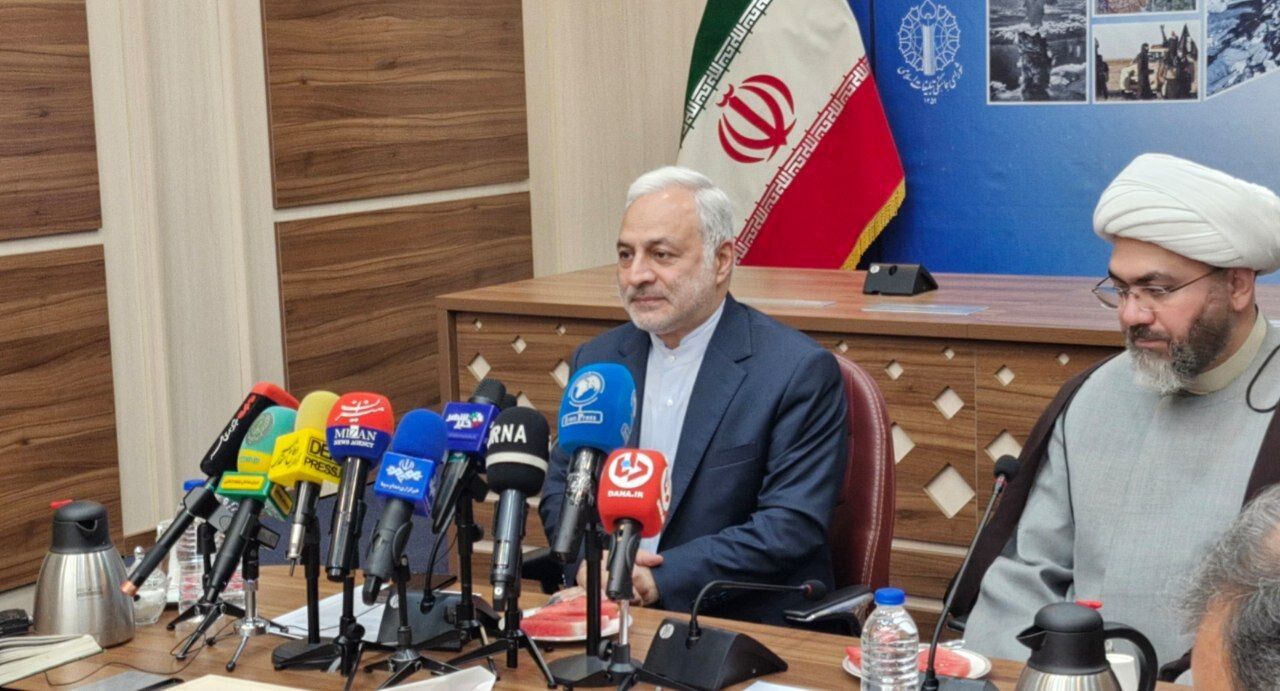
Similar Posts
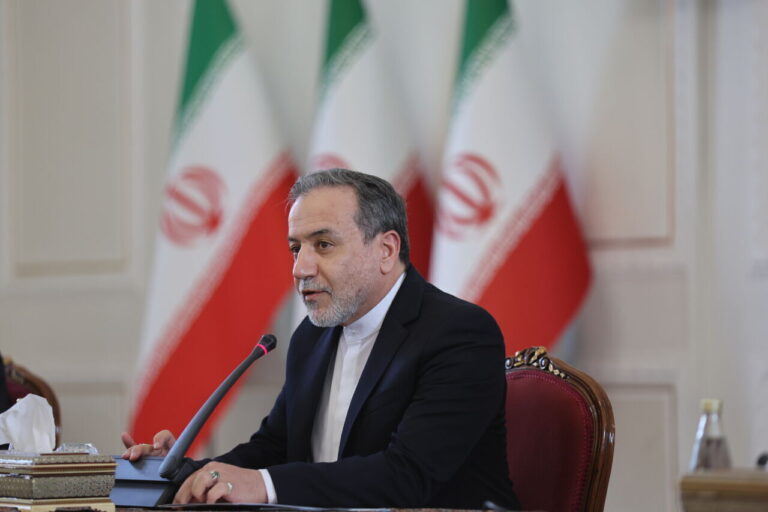
Transformative Changes Unfolding in the Persian Gulf: Insights from the Foreign Minister
In a recent address, Iranian Foreign Minister Abbas Araghchi announced a new era of regional cooperation in the Persian Gulf, emphasizing Iran’s crucial role in enhancing security. Speaking at a conference in Tehran, he outlined Iran’s strategy of relying on local forces for security, highlighting its unmatched contributions to regional stability. Araghchi noted the Persian Gulf’s strategic significance and criticized the interference of extra-regional powers that perpetuate crises for their own interests. He expressed optimism about a shift towards inclusive relations, indicating that efforts to isolate Iran have failed and that a promising future for cooperation lies ahead.
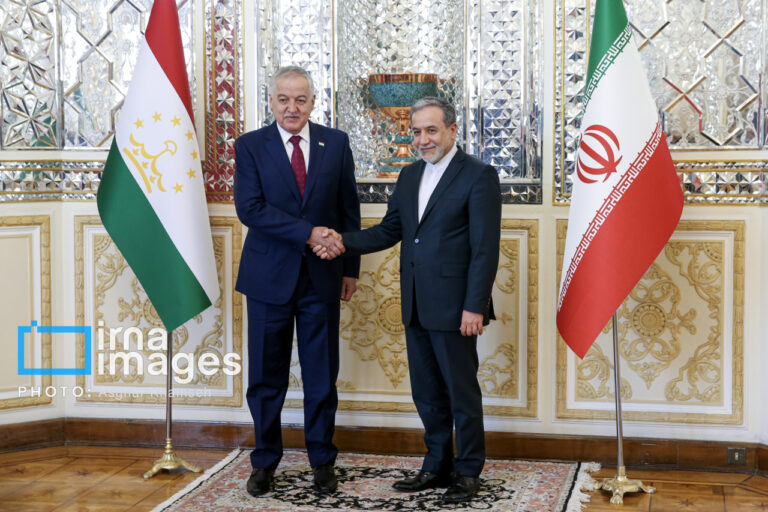
Tehran Hosts Key Meetings: Foreign Minister Engages with Tajik Counterpart and Armenia’s Security Chief
Tehran has emerged as a crucial center for diplomatic dialogue, with Foreign Minister Abbas Araqchi hosting officials from Tajikistan and Armenia for the Tehran Dialogue Forum. Discussions focused on regional stability, mutual interests, and peace agreements. Araqchi met with Tajik Foreign Minister Sirojiddin Muhriddin to discuss bilateral collaborations and international developments. He also spoke with Armenian Security Council Secretary Armen Grigoryan about enhancing ties and the importance of implementing the peace agreement between Armenia and Azerbaijan, which aims to resolve long-standing conflicts. Grigoryan appreciated Iran’s support for Armenia’s sovereignty, emphasizing the forum’s role in fostering global peace and cooperation.
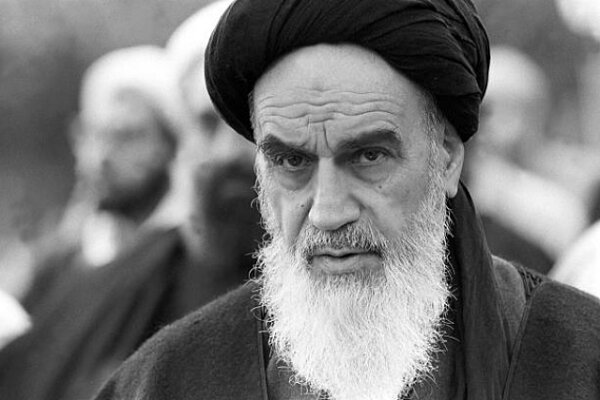
Ruhollah Khomeini: A Journey Through His Life from Birth to Legacy
Ayatollah Sayyed Ruhollah Mousavi Khomeini, born on September 24, 1902, in Khomein, Iran, was a key figure in the 1979 Islamic Revolution that overthrew the Shah and established the Islamic Republic. A prominent cleric and Marja, Khomeini became Iran’s Grand Leader, shaping Islamic governance through his concept of velayat-e faqih. After years in exile, he returned to Iran on February 1, 1979, to a triumphant welcome. He passed away on June 3, 1989, with his funeral attended by over ten million people. His legacy endures, influencing contemporary Islamic thought and governance.
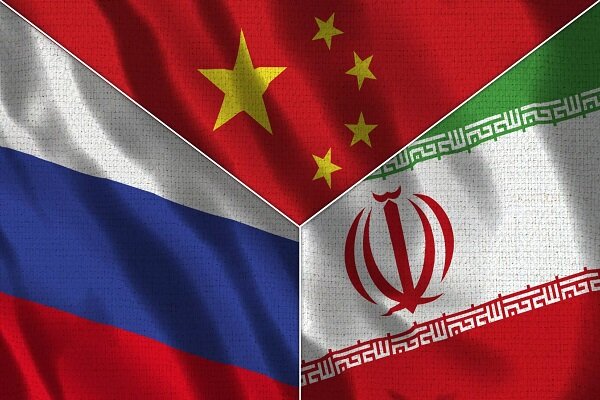
China and Russia Support Iran’s Peaceful Nuclear Ambitions, Strengthening Global Alliances
In a recent meeting led by Chinese Vice Foreign Minister Ma Zhaoxu, representatives from China, Russia, and Iran emphasized the need to lift U.S. sanctions on Iran amid ongoing nuclear discussions. The joint statement advocated for diplomacy over unilateral sanctions and reaffirmed Iran’s right to peaceful nuclear energy under the Non-Proliferation Treaty. China’s Foreign Minister Wang Yi supported the 2015 nuclear deal framework as a basis for resolution. The talks come amidst heightened tensions due to U.S. sanctions reimposed by President Trump, with Iran asserting it will not negotiate under pressure. China’s diplomatic role is increasingly significant in global peace efforts.
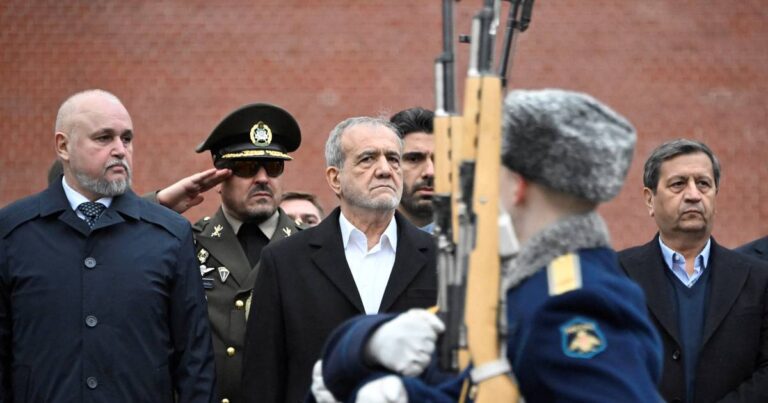
Tehran’s President Set to Address Key Nuclear and Regional Concerns in Moscow Meeting
Iran’s President Masoud Pezeshkian is set to discuss the country’s nuclear program with Russian President Vladimir Putin during a visit to Moscow, amidst rising regional tensions. Key topics will include developments in Syria and Gaza, alongside Iran’s nuclear advancements, which have raised concerns of a potential arms race in the Middle East. Since the U.S. withdrew from the JCPOA in 2018, Iran has escalated uranium enrichment, currently possessing enough 60% enriched uranium for several nuclear bombs. The meeting underscores the critical role of Russia as an ally for Iran, especially with the shifting power dynamics in the region.
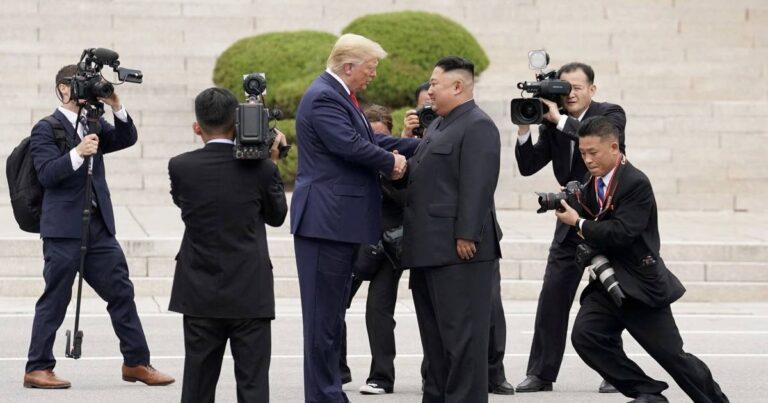
Iranian Lawmaker Advocates for Nuclear Arsenal, Inspired by North Korea’s Security Strategy
A member of Iran’s parliament, Ahmad Naderi, has called for the country to develop and test atomic weapons, citing North Korea’s nuclear program as a model for enhancing national security. His remarks reflect a growing sentiment among Iranian hardliners in response to perceived threats from former President Trump. Naderi emphasized that possessing nuclear arms could deter aggression, a view supported by other political figures, including veteran negotiator Ali Larijani. Amid escalating tensions with the US and Israel, Iranian lawmakers are advocating for a reassessment of the nation’s nuclear policy, raising concerns about Iran’s potential nuclear ambitions and regional security implications.